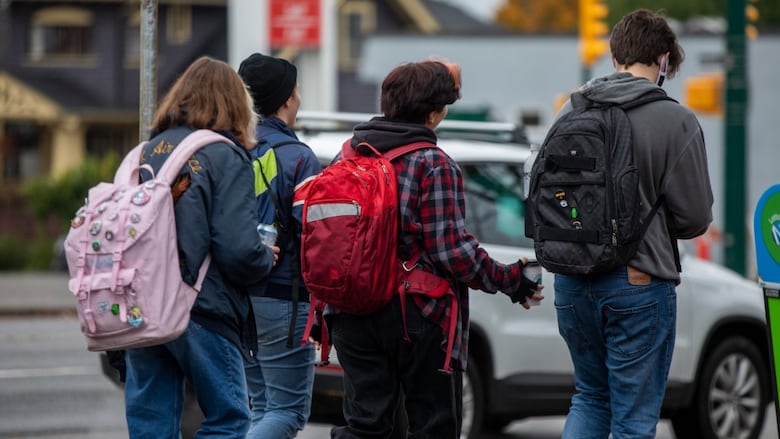Young people more prone to believe in conspiracies, research shows
U of O researcher says they've been 'alienated' from politics

Hillary Clinton had Jeffrey Epstein killed. Barack Obama was not born in the United States. The pharmaceutical industry was responsible for the spread of COVID-19.
These are all conspiracies with no basis in fact, says University of Ottawa professor Daniel Stockemer — but his research shows that theories like them are gaining traction among young people.
In fact, people younger than 35 are more likely to believe in conspiracy theories than other age groups, according to a recent study by Stockemer and co-author Jean-Nicolas Bordeleau that surveyed more than 380,000 people internationally.
The research was recently published in the journal Political Psychology.
"Conspiracy theories are now for everyone," Stockemer told CBC Radio's All In A Day, noting that between 20 and 25 per cent of the population believes in one.
"But the young are slightly more likely to believe in them."
For example, their research suggests a slight year-over-year drop in conspiracies to the point where an 80-year-old is about 10 per cent less likely to believe one than an 18-year-old.
If the problem isn't addressed, Stockemer said he expects the "democratic backsliding" he's seen all over the world to continue.
"If we don't have a young population that stands up for the values of democracy ... who else will?"
Why do young adults believe conspiracies?
There are many reasons why young people are particularly susceptible, Stockemer said — including the fact the political world has become more divided and chaotic.
"Right now, we're in a world of polarization," he said. "There is no compromise, no middle ground."
Compounding that effect, Stockemer said, is that young people are being "alienated" from politics as mainstream politicians largely ignore their concerns — including during the last federal election.
"The leaders didn't even come to the [University of Ottawa] to have a talk or anything," he said. "And then we wonder why young people have a higher tendency to go the populist or conspiracies route."
Then there's technological leaps like the internet, smart phones and social media, Stockemer said, which allow conspiracy and misinformation to spread, especially among young people.
The internet also potentially exposes them to every unfortunate incident that happens in the world, said Carmen Celestini, who teaches at the University of Waterloo and studies disinformation, extremists and conspiracy theorists.
"That fear and that perpetual sense of disaster can lead people to believe in conspiracy theories," said Celestini, noting she wasn't surprised "even a little bit" by Stockemer and Bordeleau's findings.
Influencers who tote extremist views and conspiracies also give their viewers someone or something to blame, she added.
No 'quick fix'
Widespread conspiracies and the problems inherent to the internet will require a "global response," said Celestini, one that will involve talking about the fears and emotions that led people to these conclusions.
"It really is [about] having that transparent talk with your child about what it is that they're feeling, why they might believe some of these ideas and where the emotions behind it come from," she said.
Stockemer said there's no "quick fix," but improving civic education and better regulating misinformation online would help.
"To bring [young people] back, we need to also include them within the democratic politics much more than now," he said.
And there could be immense consequences, he added, if we continue to neglect the susceptibility of young people to conspiracy theories.
"Over the past 10 years, the number of democracies has declined [and] long-standing democracies like the United States [and] India are in serious danger of falling," he said.
"If we continue the path we are continuing, I don't know how long some established democracies will survive. … And I think that's one of the far-reaching lessons from my research."


